Devil and Miss Jones, The (1941)
“I watch the little ants scurrying around and I know each is going to get his just dessert.”
|
Synopsis: |
|
Genres, Themes, Actors, and Directors:
Review:
While I appreciate The Devil and Miss Jones on nearly every level outlined above, it’s less of a personal favorite — perhaps because I wasn’t entirely sold on the fantasy element. Clearly, one has to buy into the premise that Coburn simply needs to visit his own employees in order to have a huge change of heart — wouldn’t life be wonderful if that were the case? I suppose that was (and remains) the allure for many. My favorite aspects of the film are its seemingly “pre-planned” camera angles and highly crafted look; it’s visually evocative from beginning to finish (even during scenes that strain credulity — such as the beach picnic at Coney Island). I’m also a fan of Byington’s adorable performance, and Jean Arthur is never not a pleasure to watch in action. (She and Coburn would reteam for The More the Merrier [1943].) Note: It’s interesting to read about director Sam Wood’s own conversative, anti-Communist political leanings, which became truly extreme by the end of his short life; see Wikipedia’s entry for more information. Redeeming Qualities and Moments:
Must See? Links: |
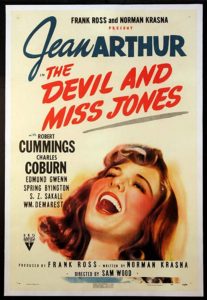

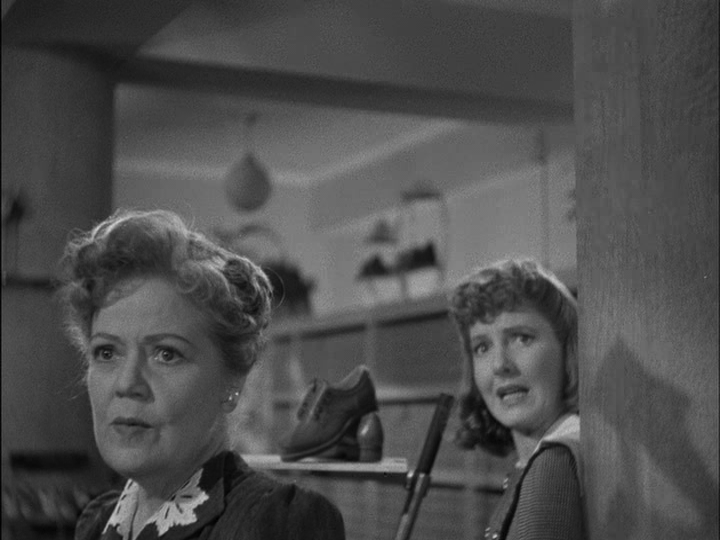
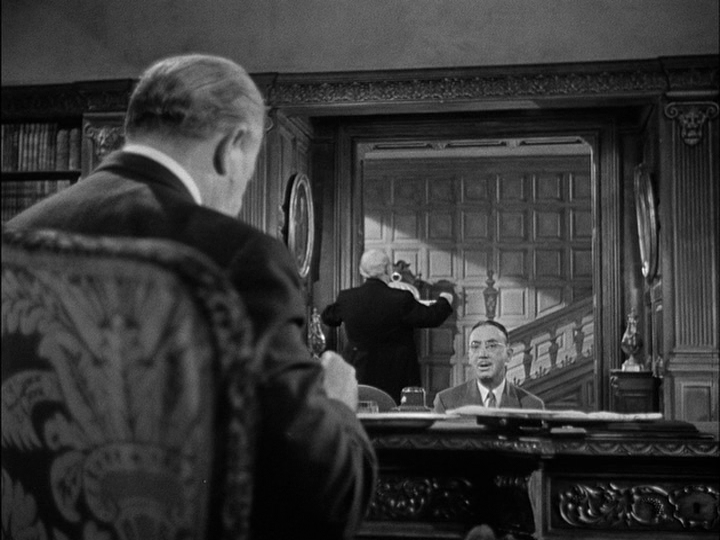
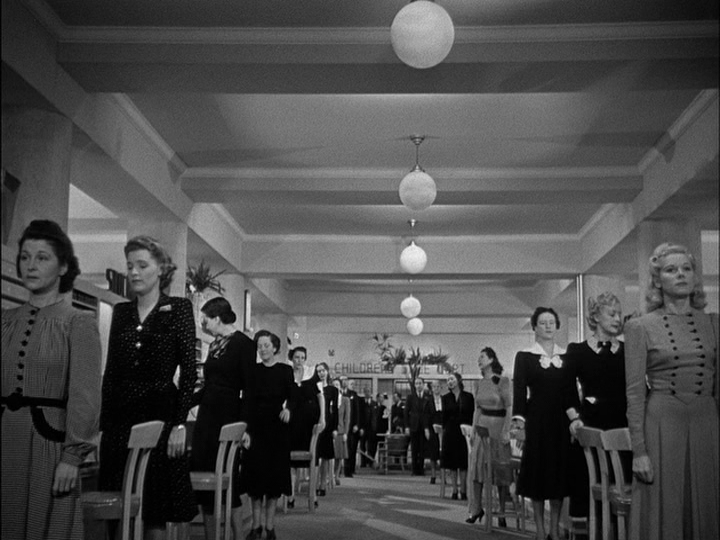
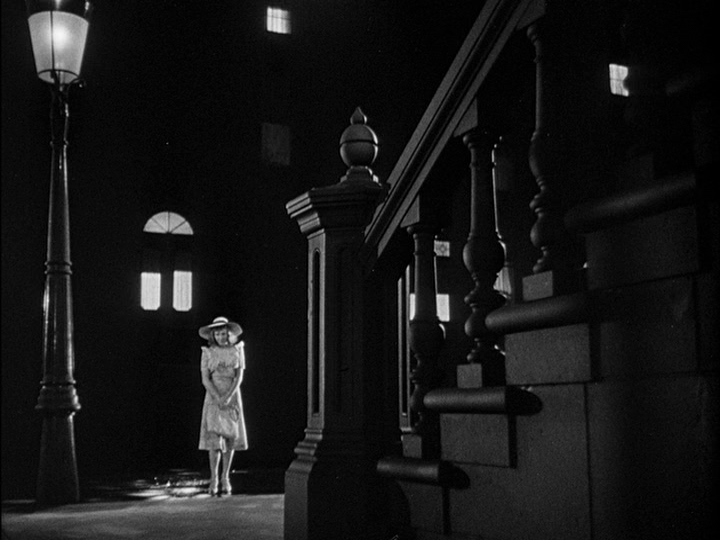

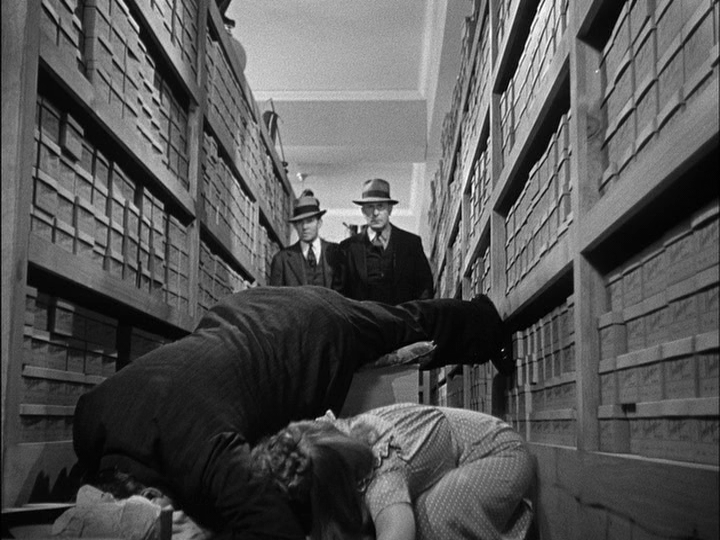

One thought on “Devil and Miss Jones, The (1941)”
First viewing. A once-must, as a rather successful social comedy – and for the performances.
As per my post in ‘The ’40s-’50s in Film’ (fb):
“Miss, we are not concerned with moral issues.”
‘The Devil and Miss Jones’ (1941): Wikipedia makes the point of letting us know this film should not be confused with the 1973 porn classic ‘The Devil in Miss Jones’. (Thank you, Wikipedia, for looking out for us! 😉 ) …The prolific Norman Krasna wrote this unusual comedy which gives the hot-button topic of labor unions the Cinderella treatment. Krasna teamed with star Jean Arthur’s husband Frank Ross to produce it independently – and he later called the work on this film one of the best experiences of his career. Charles Coburn stars as a cantankerous (of course) tycoon who goes undercover at a store he owns – in order to get the lowdown on the ‘leftist agenda’ brewing there. Director Sam Wood (who mostly led dramas) ends up being a good choice, giving this social-issue comedy enough necessary weight. Along the way – and aside from another fine performance by Arthur, Wood gets especially subtle and memorable turns from Edmund Gwenn (as a formidable store manager) and Spring Byington (as an unexpected love interest for Coburn). The last half-hour is particularly rewarding. (Coburn and Krasna got Oscar noms.)